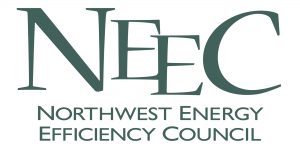The Bonneville Power Administration will be making an historic change to its wholesale rate structure effective October 1, 2010. BPA will begin a “tiered rate” system in which each of its retail utility customers will be able to purchase specific quantities of electricity at a rate associated with its cost of production. A retail utilities power needs beyond that quantity can be met through its own market purchases or by acquiring power through BPA at a second tier cost associated with market prices. This new structure will provide a strong signal to BPA retail utilities to promote energy efficiency in its service area as a means to avoid the purchase of more expensive market rate based power. With this significant shift in rate structure, BPA has spent much of the last year looking at how tiered rates affect BPA’s energy efficiency program effort. Recently, BPA issued a public comment draft of its proposal for energy efficiency in this post-2011 environment. A copy of the proposal is available at http://www.bpa.gov/Energy/N/post-2011/ In summary, BPA proposes to continue its existing regional programs and provide new offerings in other market segments than can benefit from economies of scale. The cost for these activities will be in the Tier 1 cost pool. Utilities will have some flexibility in how they participate in BPA programs to access the dollars and services they are supporting through their Tier 1 power purchases. Utilities will be encouraged to self-fund energy efficiency and to coordinate that activity to their best advantage with BPA efforts. BPA activity will largely fall into 3 areas; a) regional infrastructure b) incentive funding and c) implementation mechanism. The proposed framework will attempt to balance what each utility pays into BPA through their power purchase with the services and/or incentives it receives. BPA states in the proposal that it will play a “back up role” to ensure that the region’s public utilities acquire their share to the 6th Power Plan targets – largely by monitoring regional acquisition and making adjustments to program efforts as necessary. The comment period begins on April 12, 2010 and closes on May 26, 2010. Comments can be submitted through BPA’s Comment Web site, public involvement phone line at 800-622-4159, or faxed to 503-230-3285.
 The Northwest Energy Efficiency Council transitioned to the name Building Potential in 2024. The organization’s legal name remains the same and the Board of Directors and Staff have not changed. The Northwest Energy Efficiency Council transitioned to the name Building Potential in 2024. The organization’s legal name remains the same and the Board of Directors and Staff have not changed. |